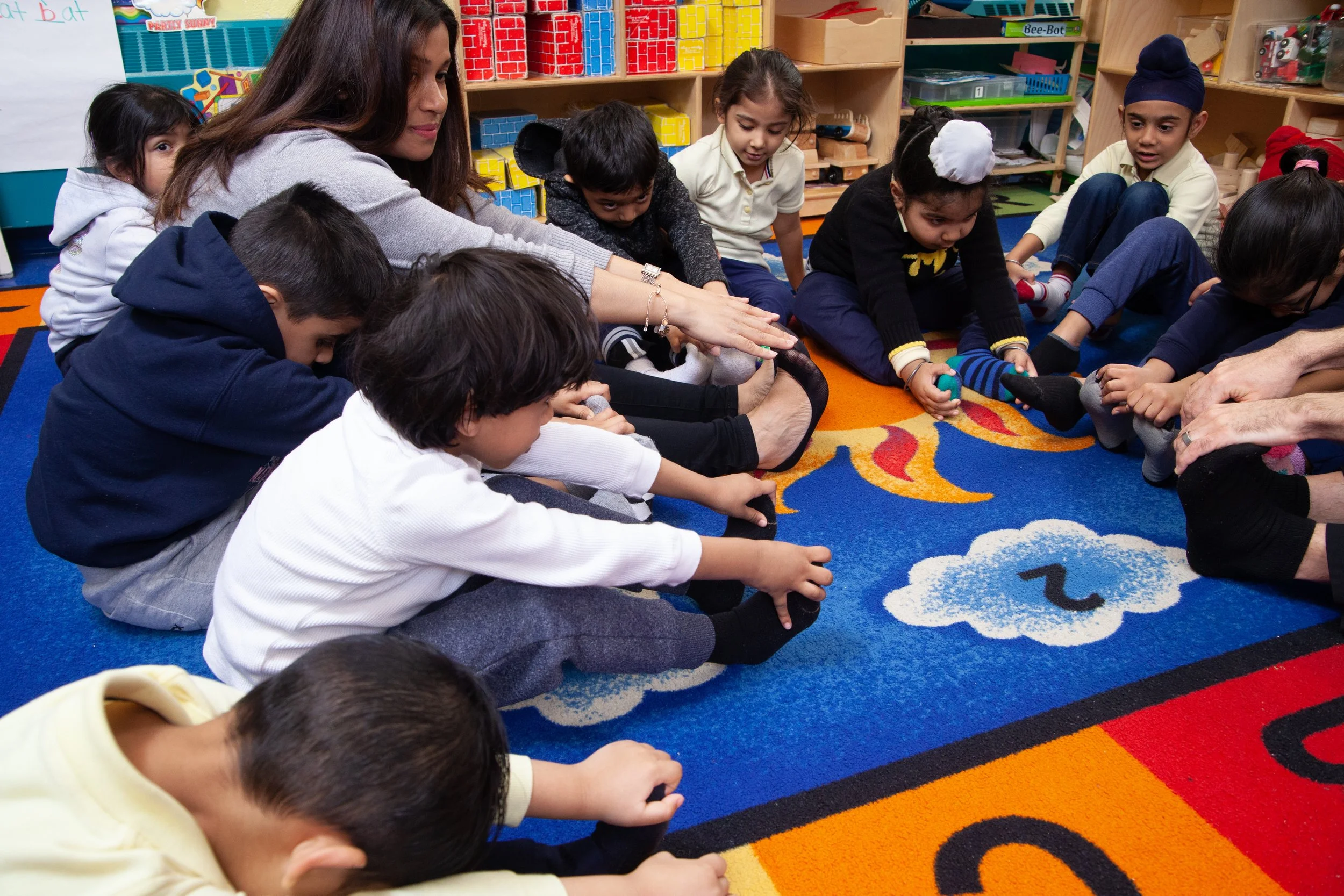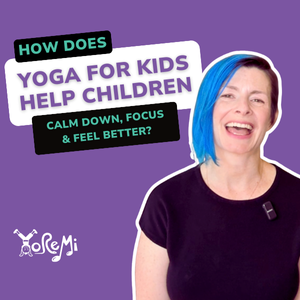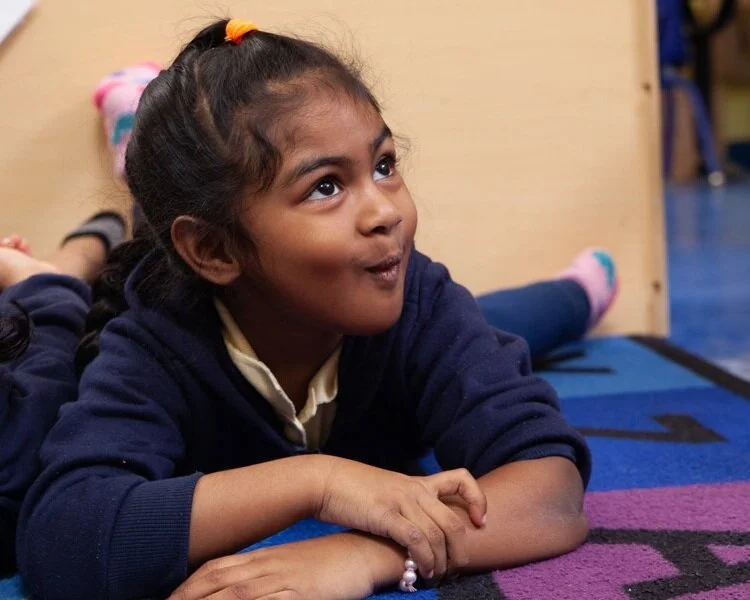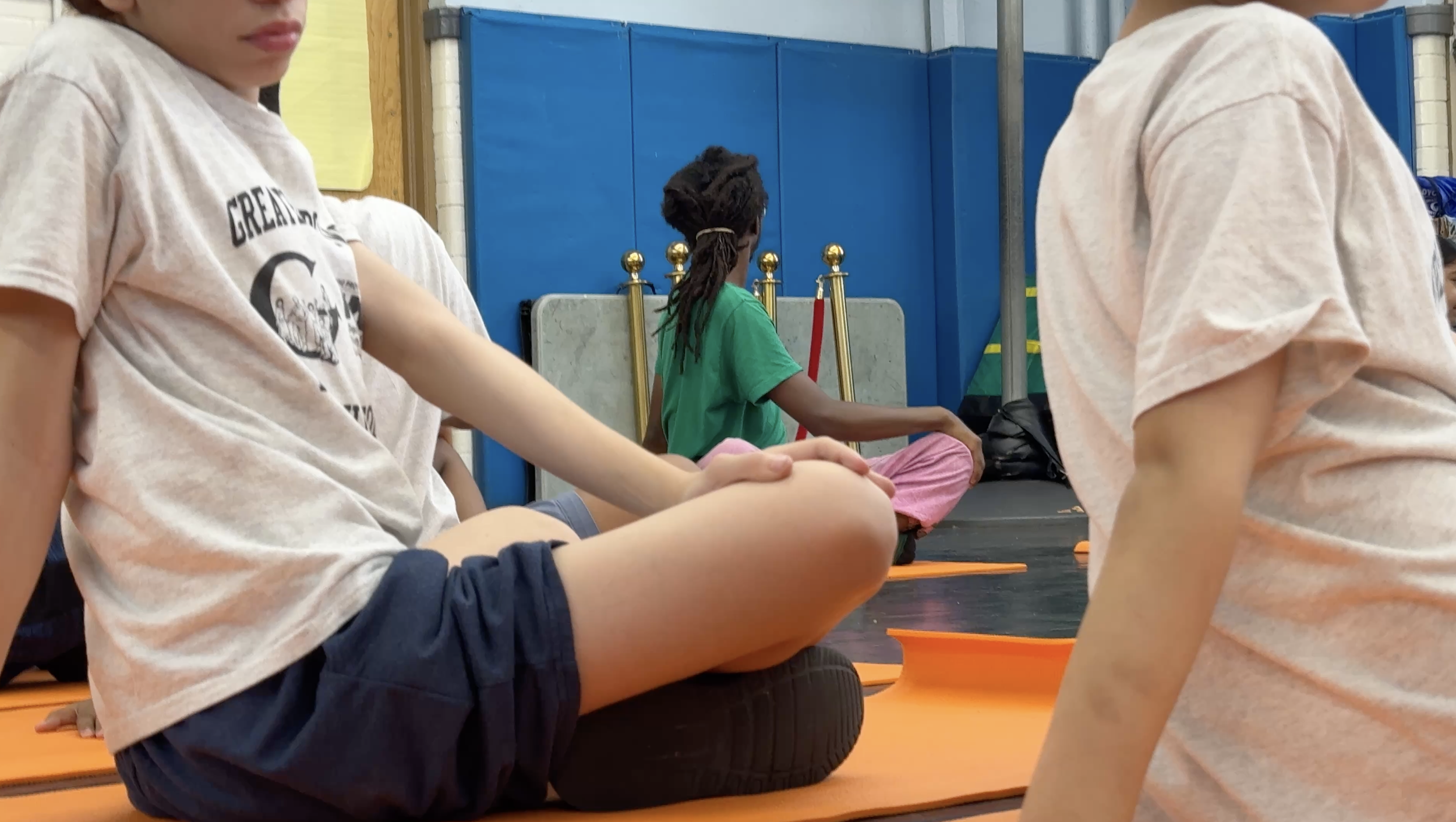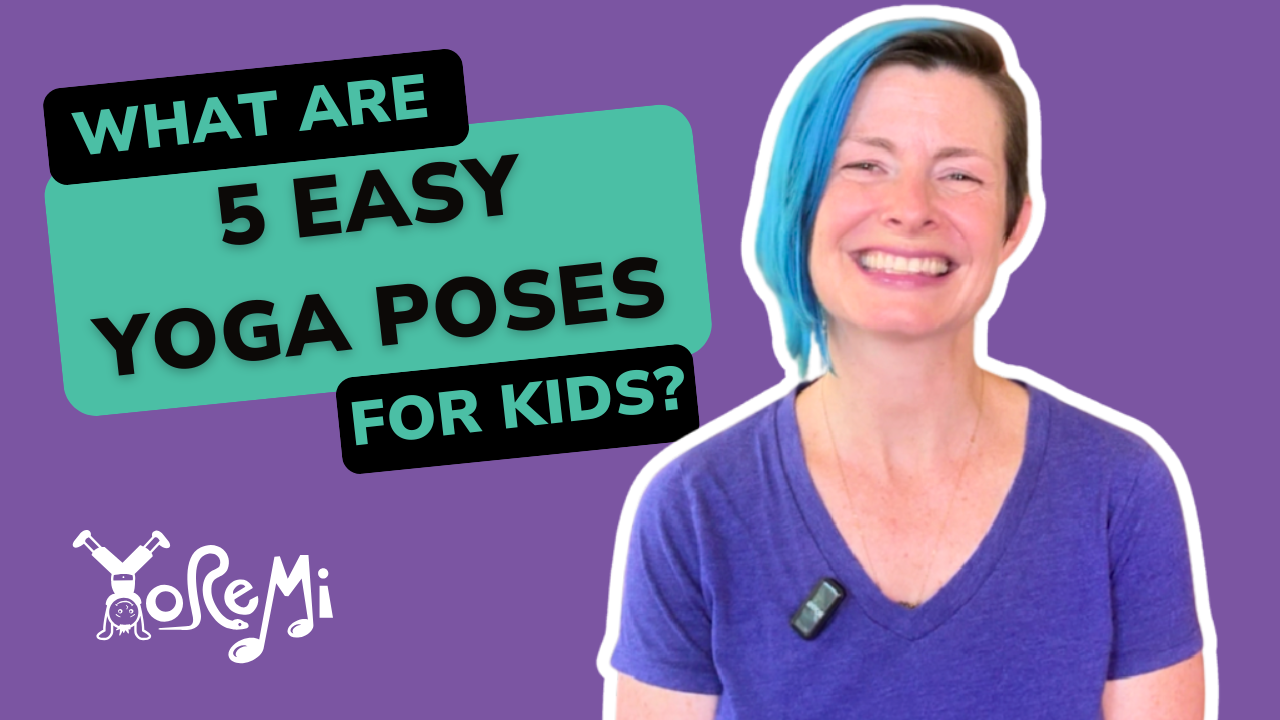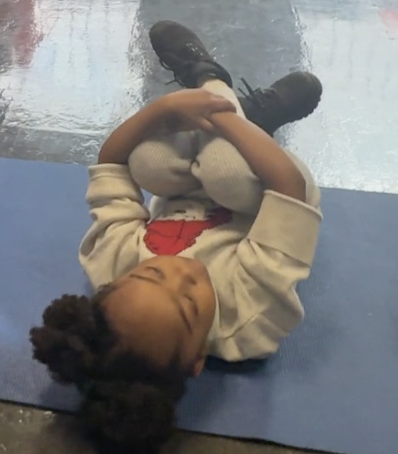7 Ways Music in Preschool Helps Children Thrive Academically
Music in early education is vital to young learners. In our article about the effects of music on early child development, we discuss how music can build language skills, provide space for sensory exploration, and develop intrinsic knowledge of musical elements.
But the benefits of music education in preschool can go beyond that, even.
As a music and movement program inspired by Dalcroze Eurythmics we know that music education plays a pivotal role in helping preschoolers and early elementary students grasp academic curriculum.
Here are some ways music education benefits early education, how we continue empowering our students with music in our own program, and how you can too!
1. Music Education Supports Multimodal Learning
Students learn in different ways. Remaining flexible and taking various approaches to multi-sensory learning helps engage the senses, allows children to take the lead, and supports child development.
When we make space for a child’s learning style and unique ideas, or provide accessible ways to communicate information, we make learning limitless. Which helps children feel confident in taking on new challenges in the classroom.
2. Music Helps Children Grasp Complex Concepts in the Classroom
One of our favorite ways to introduce science to young children (and other STEM subjects) is to make a song out of it! We have an entire library of original songs that support classroom curriculum and "continue the conversation” beyond homework.
Take for instance, the Water Cycle. Earth’s water is always changing states, so when we use music and movement to discuss its transition between liquid, vapor and ice, it is fun to visualize the information using our voices and bodies.
Water Cycle for kids: try some of these resources
15 water-themed kids activities (indoors)
Water Cycle Musical Yoga Adventure (22 minute video for kids)
3. Music Learning Can Correlate to Stronger Math Skills
Many music and mathematics experts share this theory: music is math!
There are various parallels between music and math, the most clear similarity being the use of patterns. It’s one of the reasons why we recommend music as an essential enrichment program needed in schools, due to its significance in developing math abilities like sequencing and patterns.
Read more about this link in our article on teaching kids rhythm and tempo and practice sequencing in our Rhythm Sticks video below.
4. Music Training Helps Process Language
There are multiple ways music can help us process and develop language skills. It helps us improve listening and comprehension, speech development, and can even make it easier to learn a new language!
As children build their vocabulary with more complex words and meanings, try turning them into a sing-along song and you’ll notice how much easier it is for many young learners to retain information through music.
Try it yourself with our list of Spanish sing-along songs (see a sample video below).
5. Learning How to Play Instruments Strengthens Hand-Eye Coordination
Whether creating DIY instruments for kids with open-ended materials, or budget-friendly music gifts for the classroom or home, there are many ways you can incorporate musical instruments into your lesson planning and help kids thrive academically.
Playing an instrument strengthens hand-eye coordination and visual tracking skills, which allows children to improve their reading, handwriting, note-taking, sport play, and more.
Beginner instruments to try (and their benefits):
Ukulele (a Yo Re Mi favorite!)
6. Music Builds Executive Function
Excelling in the classroom and across various academic subjects requires a level of executive functioning skills that can greatly elevate a child’s work ethic and approach to learning.
As parents and educators, it is our job to provide a safe environment where children can learn to self-regulate, build social emotional learning, understand time management, organization and more.
When we use music in early education, we help kids build that strong foundation so they can thrive academically for years to come.
7. Music Can Impact Classroom Behavior
We all learn differently — that includes children. Academic performance does not make one child “good” and the other “bad”, however it may be a signal that there is a roadblock in their learning journey.
Though some cases may require further professional evaluation, we find that music is an impactful tool in helping children learn easy and effective emotional regulation techniques to help them deal with big feelings.
We teach these classroom strategies in our yoga training certification and often hear from educators and childcare professionals that combining music with movement and mindfulness really helps bring calm to the classroom, and in turn improves academic performance.
There are clear advantages to valuing music learning in early education, and parents and educators often see these effects reflected in their children’s academic growth.
We hope you find these tools and activities useful in your own classrooms (or home/remote schooling!) and see the child development benefits music can truly have.
Save this article for later and don’t forget to download the Yo Re Mi app for ad-free kids musical yoga and mindfulness videos.







